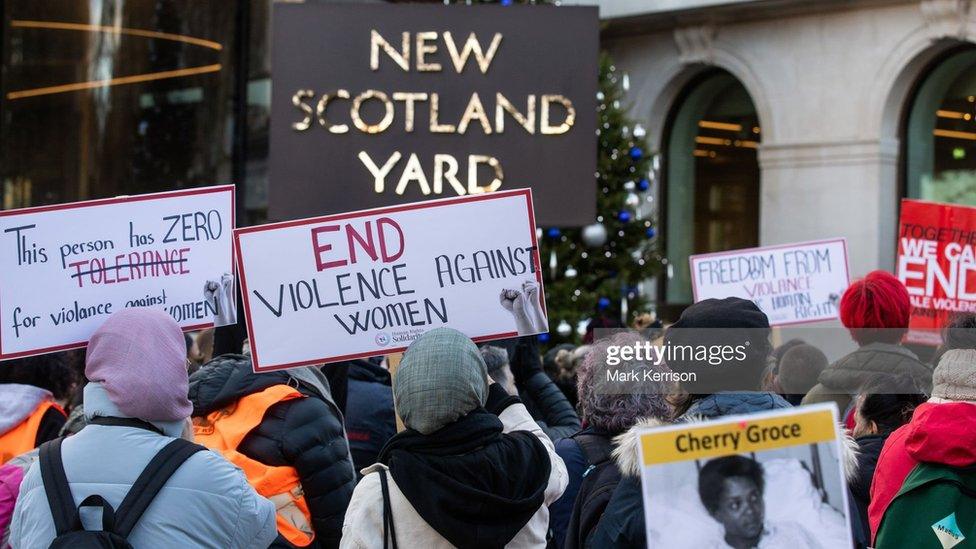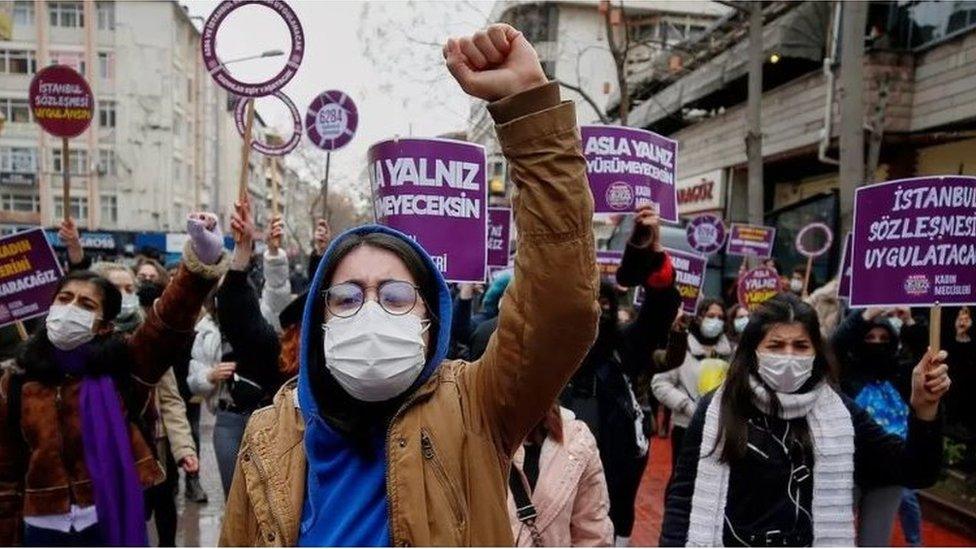UK joins international treaty to prevent violence against women
- Published

Women attend a vigil outside New Scotland Yard to remember the victims of male violence against women, 25/11/21
After a 10 year delay, an international treaty to combat violence against women has been integrated into UK law.
But the government has opted out of the section of the Istanbul convention, external that aims to protect migrant women and those without UK citizenship.
The Home Office said it wants to "establish the evidence base" on the funding needed to support migrant women before committing fully to the treaty.
Under the Istanbul convention, governments are obliged to change their laws and take practical action to promote zero-tolerance of violence against women and girls. It also aims to combat domestic violence against women and men.
The UK government's reluctance to include migrant women has led to criticism from activist groups.
'Two-tier system'
Women's Aid tweeted: "We want to see steps to build a safer world for ALL women & girls. We're disappointed to see migrant women are not given equal protection from abuse. #AllWomenMeansAllWomen"
The End Violence Against Women coalition said the UK's exemption to the Istanbul convention will create a "two-tier system, where migrant women are given a lesser status and lesser protections".
The Domestic Abuse Commissioner for England and Wales, Nicole Jacobs, tweeted that she remained "deeply concerned that the govt opted out of key rights for migrant women" adding that "migrant survivors need support."
Last year, the government introduced new laws in England and Wales to tackle violence against women.
The Domestic Abuse Act aims to strengthen rules surrounding controlling or coercive behaviour, target revenge porn and end the "rough sex defence" in court. It also recognises children as victims of domestic abuse.
In 2021, police recorded 1,459,663 abuse related crimes in England and Wales, external, almost 80,000 more than in 2020.
It is hoped joining the Istanbul convention will force the UK to do more in terms of tackling domestic abuse, rape, female genital mutilation and forced marriage.
The 10 year delay to ratify the convention led to the Lords International Agreements Committee carrying out an inquiry in 2021, calling it "troubling".

Women protested against Turkish government's denunciation of Istanbul convention
The treaty has 45 signatories, 37 of which have integrated its measures into law. The UK and Ukraine are the latest to enforce the Istanbul convention on 1 November 2022.
Other countries fully pledged to the convention include Spain, Germany, France, Ireland, Cyprus and Italy.
Last year, women protested when Turkey became the first and only country to leave the Istanbul convention.
The Turkish government denounced it, saying the treaty had been "hijacked" by people trying to "normalise homosexuality" and undermined "traditional family values."
US President Joe Biden called Turkey's withdrawal "disappointing" and a "disheartening step backward" from an international accord designed to protect women from violence.